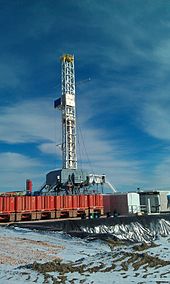The Texas Supreme Court recently decided a case in which an oil company’s withholding of production payments was contested. In Freeport-McMoRan Oil & Gas LLC v. 1776 Energy Partners, LLC, ___ S.W.3d ___, 2023, WL ___ (Tex. May 19, 2023), two oil companies, Ovintiv and 1776 Energy, entered into an agreement to jointly develop and produce minerals from certain leases they owned in Karnes County. Ovintiv was in charge of distributing production payments.
A third oil company sued 1776 to require it to transfer leases to the third company, and obtained a constructive trust on production payments until the transfer was completed. Because the trust clouded title to the production payments, Ovintiv suspended payments to 1776. 1776 eventually got paid but wanted interest on those payments from Ovintiv.
The Supreme Court held the suspension was authorized by the Texas Natural Resources Code. That Code provides that withholding payments without interest was allowed when a title dispute “would affect distribution of payments.” The Code also states that allows a payor can withhold payments without interest when the payor has reasonable doubt that the payee has clear title to the proceeds. Thus, the Court held 1776 was not entitled to interest.






